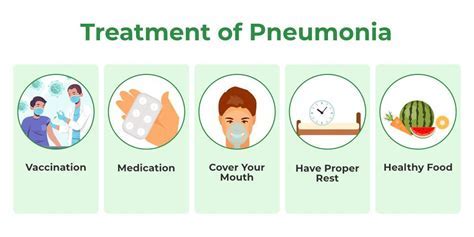Intro
Learn about vaginal bleeding during pregnancy, its causes, and symptoms. Understand spotting, miscarriage, and ectopic pregnancy risks with related terms like prenatal care and pregnancy complications.
Vaginal bleeding during pregnancy can be a cause for concern for many expectant mothers. It is essential to understand that bleeding during pregnancy is not always a sign of a problem, but it can be a symptom of an underlying issue that needs medical attention. Bleeding can occur at any stage of pregnancy, and its causes can vary depending on the trimester. In this article, we will delve into the possible causes of vaginal bleeding during pregnancy, its symptoms, and what to expect if you experience bleeding during this critical period.
Bleeding during pregnancy can be light or heavy, and it may be accompanied by other symptoms such as cramping, abdominal pain, or discharge. Some women may experience bleeding after intercourse, while others may notice spotting or light bleeding after a pelvic exam. It is crucial to seek medical attention if you experience any vaginal bleeding during pregnancy, as it can be a sign of a complication that needs prompt treatment.
The importance of understanding vaginal bleeding during pregnancy cannot be overstated. According to the American College of Obstetricians and Gynecologists (ACOG), vaginal bleeding is a common symptom during pregnancy, affecting up to 30% of pregnant women. However, in some cases, bleeding can be a sign of a serious condition, such as placenta previa or placental abruption, which can put both the mother and the baby at risk. Therefore, it is essential to be aware of the possible causes of vaginal bleeding during pregnancy and to seek medical attention if you experience any unusual symptoms.
Causes of Vaginal Bleeding During Pregnancy

Vaginal bleeding during pregnancy can be caused by various factors, including hormonal changes, implantation of the fertilized egg, or complications with the placenta. Some of the possible causes of vaginal bleeding during pregnancy include:
- Implantation bleeding: This type of bleeding occurs when the fertilized egg implants into the uterine lining, causing light bleeding or spotting.
- Hormonal changes: Fluctuations in hormone levels during pregnancy can cause changes in the cervix, leading to bleeding.
- Cervical polyps: These are growths on the cervix that can cause bleeding during pregnancy.
- Infection: Bacterial or viral infections, such as yeast infections or urinary tract infections, can cause bleeding during pregnancy.
- Placenta previa: This condition occurs when the placenta covers the cervix, causing bleeding during pregnancy.
- Placental abruption: This condition occurs when the placenta separates from the uterus, causing bleeding and depriving the baby of oxygen and nutrients.
Symptoms of Vaginal Bleeding During Pregnancy
Symptoms of vaginal bleeding during pregnancy can vary depending on the cause and severity of the bleeding. Some common symptoms include:- Light or heavy bleeding
- Spotting or staining
- Cramping or abdominal pain
- Discharge or leakage of fluid
- Fever or chills
Diagnosis and Treatment of Vaginal Bleeding During Pregnancy

If you experience vaginal bleeding during pregnancy, your healthcare provider will perform a physical exam and take a medical history to determine the cause of the bleeding. Your provider may also order tests, such as:
- Ultrasound: To check the baby's growth and position, as well as the placenta's location.
- Blood tests: To check for infection or other underlying conditions.
- Pelvic exam: To check for any abnormalities in the cervix or uterus.
Treatment for vaginal bleeding during pregnancy will depend on the cause and severity of the bleeding. In some cases, bed rest or pelvic rest may be recommended to reduce bleeding and promote healing. In other cases, medication or surgery may be necessary to treat the underlying condition.
Prevention of Vaginal Bleeding During Pregnancy
While it is not possible to prevent all cases of vaginal bleeding during pregnancy, there are steps you can take to reduce your risk:- Maintain good prenatal care: Regular check-ups with your healthcare provider can help identify any potential issues early on.
- Practice good hygiene: Avoid using scented soaps or douching, as these can irritate the vagina and cause bleeding.
- Avoid heavy lifting or bending: These activities can put pressure on the uterus and cause bleeding.
- Get plenty of rest: Fatigue can exacerbate bleeding, so it is essential to get plenty of rest and avoid strenuous activities.
Risk Factors for Vaginal Bleeding During Pregnancy

Certain risk factors can increase your likelihood of experiencing vaginal bleeding during pregnancy. These include:
- Age: Women over 35 years old are at higher risk of vaginal bleeding during pregnancy.
- Previous pregnancy complications: Women who have had previous pregnancy complications, such as placenta previa or placental abruption, are at higher risk of vaginal bleeding during pregnancy.
- Multiple pregnancy: Women carrying twins or other multiples are at higher risk of vaginal bleeding during pregnancy.
- History of abortion or miscarriage: Women who have had a previous abortion or miscarriage are at higher risk of vaginal bleeding during pregnancy.
Complications of Vaginal Bleeding During Pregnancy
Vaginal bleeding during pregnancy can lead to complications for both the mother and the baby. Some possible complications include:- Preterm labor: Vaginal bleeding can cause the uterus to contract, leading to preterm labor.
- Low birth weight: Vaginal bleeding can deprive the baby of oxygen and nutrients, leading to low birth weight.
- Placental abruption: This condition can cause the placenta to separate from the uterus, depriving the baby of oxygen and nutrients.
- Maternal hemorrhage: Heavy vaginal bleeding can lead to maternal hemorrhage, which can be life-threatening if not treated promptly.
Management of Vaginal Bleeding During Pregnancy

Management of vaginal bleeding during pregnancy will depend on the cause and severity of the bleeding. In some cases, bed rest or pelvic rest may be recommended to reduce bleeding and promote healing. In other cases, medication or surgery may be necessary to treat the underlying condition.
Follow-up Care After Vaginal Bleeding During Pregnancy
After experiencing vaginal bleeding during pregnancy, it is essential to follow up with your healthcare provider to ensure that the bleeding has stopped and that the baby is healthy. Your provider may recommend:- Regular ultrasound exams: To monitor the baby's growth and development.
- Fetal monitoring: To monitor the baby's heart rate and movement.
- Pelvic exams: To check for any abnormalities in the cervix or uterus.
What are the common causes of vaginal bleeding during pregnancy?
+Vaginal bleeding during pregnancy can be caused by hormonal changes, implantation of the fertilized egg, or complications with the placenta. Other possible causes include cervical polyps, infection, placenta previa, and placental abruption.
What are the symptoms of vaginal bleeding during pregnancy?
+Symptoms of vaginal bleeding during pregnancy can include light or heavy bleeding, spotting or staining, cramping or abdominal pain, discharge or leakage of fluid, and fever or chills.
How is vaginal bleeding during pregnancy diagnosed and treated?
+Diagnosis and treatment of vaginal bleeding during pregnancy will depend on the cause and severity of the bleeding. Your healthcare provider may perform a physical exam, take a medical history, and order tests such as ultrasound, blood tests, or pelvic exams. Treatment may include bed rest, medication, or surgery.
In conclusion, vaginal bleeding during pregnancy is a common symptom that can be caused by various factors. While it is not always a sign of a problem, it can be a symptom of an underlying condition that needs medical attention. If you experience vaginal bleeding during pregnancy, it is essential to seek medical attention promptly to ensure the health and well-being of both you and your baby. By understanding the causes, symptoms, and treatment options for vaginal bleeding during pregnancy, you can take steps to reduce your risk and ensure a healthy pregnancy. We invite you to share your thoughts and experiences with vaginal bleeding during pregnancy in the comments section below.
